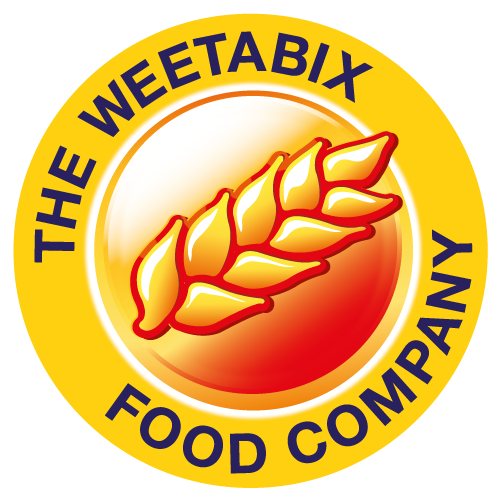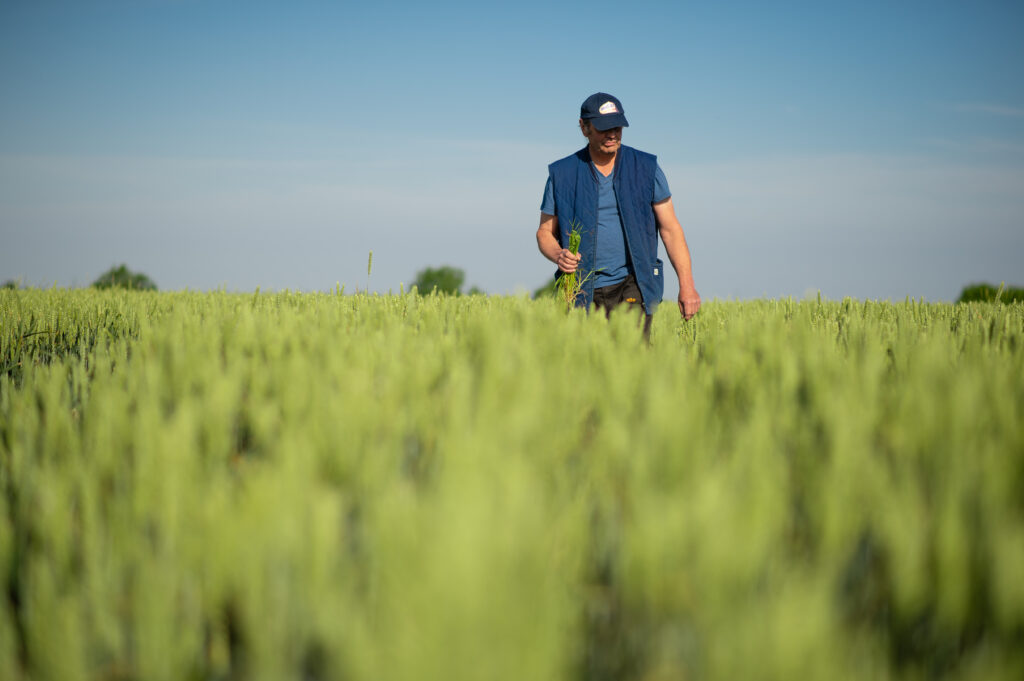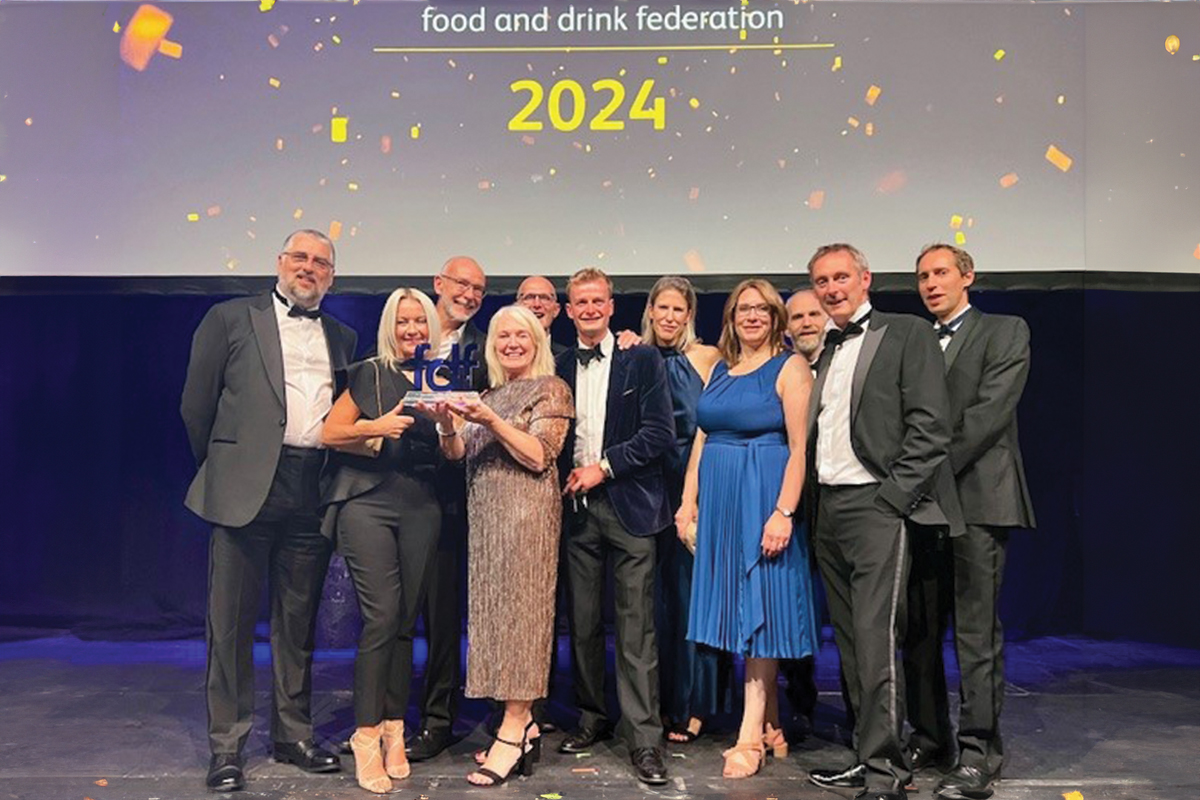- Weetabix Food Company plans to create a roadmap for producing zero carbon Weetabix Original
- Company undertakes first carbon footprint study of wheat production involving its top growers
- Study estimates Weetabix wheat produced with 40% lower emissions than standard production
Burton Latimer, Northamptonshire – The Weetabix Food Company, makers of the nation’s favourite breakfast cereal[1], has committed to setting out a roadmap that will enable it to produce its first box of zero carbon Weetabix Original. The roadmap will draw on the results of carbon footprint studies that the company is undertaking with its farmers to explore the different factors contributing to carbon emissions associated with producing their wheat.
The first study – completed this year with 17 of its top farmers who produce a third of the wheat supplied to make Weetabix biscuits – reveals that their greenhouse gas emissions for the 2021 harvest were likely to have been between 40% and 50% lower than the standard emission factors for UK wheat production used in previous calculations.
Weetabix has formed a collective of British farmers all located within 50 miles of its Northamptonshire factory to grow the best quality wheat for its products. Since it was set up in 2010, the Growers’ Group has involved over 350 local farmers growing approximately 75,000 metric tonnes of wheat each year across more than 4 million acres – equivalent to almost 3,000 football pitches.
Working with Map of Ag, a global data platform that provides insights to the agriculture industry, Weetabix were able to help some of the farmers within its Growers’ Group collect carbon footprint data more easily and provide accurate information that enabled them to look carefully at their processes. The farmers also demonstrated high nitrogen use efficiency, resulting in lower impacts on air and water quality.
John Petre, Supply Chain, Procurement and Technical Director at the Weetabix Food Company says: “We’re really proud of the study’s results and the work our Growers’ Group has put into reducing their emissions but we know that this is just the start of what’s required to significantly lower our overall carbon footprint. We want to get to a place where we can empower customers to use their buying power to choose lower carbon products. All of the work we’re currently doing with our farmers and across the business to reduce our carbon footprint will hopefully lead to producing a zero carbon box of Weetabix. That’s ultimately our goal.”
Andrew Crossley, a farmer who took part in the carbon footprint study, says: “Working with Weetabix to find ways in which we can lower our carbon emissions is the start of a valuable journey. The Growers’ Group is committed to finding the most sustainable way to grow wheat that we can. Weetabix is one of the few food manufacturers that takes the time to directly engage with farmers whilst we grow quality wheat for them. Group members also support environmental stewardship initiatives; for example planting hedgerows and having wider field margins to sustain local wildlife within Countryside Stewardship agreements.”
Following the success of the first carbon footprint study, Weetabix is repeating the assessment with more farmers over the next several years with the goal to source carbon neutral wheat. It will also work with smaller groups of pioneer growers to evaluate new technologies, such as precision nitrogen applications and soil assessments, to accelerate its carbon reduction strategy.
News of the carbon footprint studies is included in the Weetabix Company’s 2022 Sustainability Report published this week, which describes the progress it is making across the four key pillars within its ‘Change for Better’ sustainability programme: 1) Sustainable Ingredients, 2) Low-impact Packaging, 3) Efficient Operations and 4) Health and Wellbeing.
Highlights from the 2022 report include a milestone achievement of Weetabix Original biscuits’ paper wrap now being recyclable, with the goal of having 100% of packaging recyclable in the UK in November 2022. As a result of packaging changes, the company has reduced its carbon footprint by 648.4 tonnes per year.
Additionally, the Weetabix Food Company has saved over 5 million litres of water in a programme to capture and reuse condensate in its manufacturing process; donated over 3 million breakfasts to FareShare and Magic Breakfast in the past year to ensure healthy breakfasts for those who need them; and secured a new contract to supply its site with 100% renewable generated electricity until October 2025. As part of sponsorships with the English Football Association (FA) and the Football Association of Wales – which supports girls’ grassroots football – the company has also achieved 28,000 Weetabix Wildcats and 1,222 Huddle players signed up to play.
You can read more about the Weetabix Food Group’s sustainability progress in the 2022 report here.
[1] Nielsen Value Sales data – 10th September 2022



